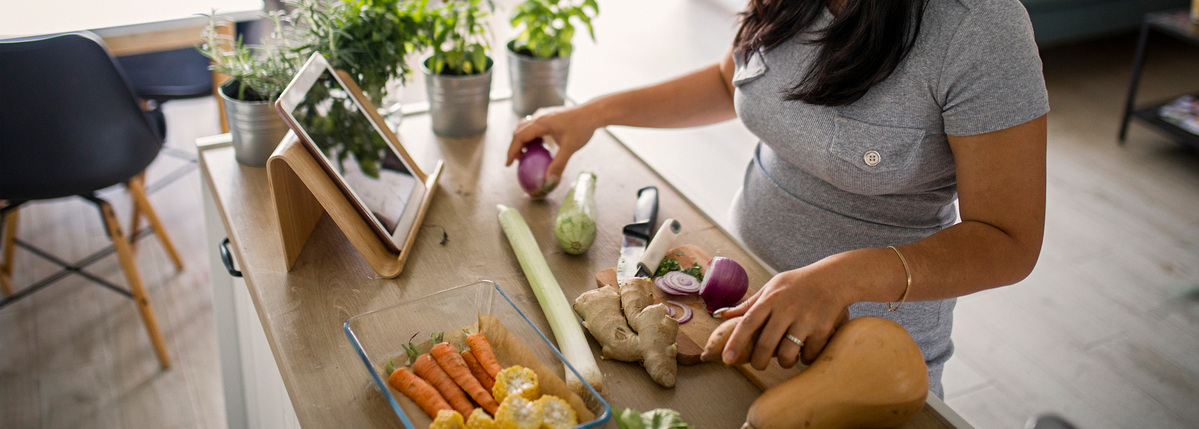8 Tips for Empowering and Being Empowered Women with Diabetes
Written by: Eugenia Araiza
4 minute read
August 13, 2021
Editor’s Note: This article was made possible with the support of Dexcom, an active partner of Beyond Type 1 at the time of publication. Dexcom was the main sponsor of the TypeOneNation Virtual Summit: Living Without Limits. Beyond Type 1 maintains full editorial control of the content published on its platforms.
Marina Chaparro was one of the guest speakers at the TypeOneNation Virtual Summit: Living Without Limits that took place on July 31st. Marina is the founder and the face behind Nutrichicos and Good Life Diabetes.
In this session, Marina shared a topic that she likes to talk about both personally and professionally: women, empowerment and diabetes.
The objective of her presentation was to talk about strategies to make empowered, safe and successful girls and women with good diabetes management by identifying the stages of development from childhood to adulthood including important and unique stages such as pregnancy.
Marina is a pediatric nutritionist and diabetes educator with more than 13 years of experience. She has worked both in children’s hospitals and in private practice where her main motto is: “I do not believe in diets; I believe in teaching both parents and children about balanced eating”. Marina has lived with type 1 diabetes since she was 16 years old, at which point her world changed overnight and the same happened with her family dynamics. However, her family was an important factor in the development of her empowerment as a person living with diabetes as they saw beyond her fears and encouraged her to follow her dreams, even if they were located far from home.
THE REALITIES OF LIVING WITH DIABETES AS A WOMAN
- Doubts and uncertainty about having healthy children
- Doubts and uncertainty about having a healthy pregnancy
- Hypoglycemia and hyperglycemia at work
- Menstruation and hormonal changes that impact our blood glucose
- Dating & Romance. When is the best time to say you have diabetes and talk about all the diabetes management needs?
- Body image and eating disorders
- The stigma of what a person living with diabetes looks like
- Fears related to how to live with diabetes
- Fertility problems and Polycystic Ovarian Syndrome
- Combining being a mother, wife, professional, etc., with diabetes
All this plus living with diabetes 24 hours a day, 7 days a week, and, in addition, going further in other aspects such as being the best athletes, loving ourselves more, loving our body as it is, being that entrepreneurial and empowered woman with diabetes.
EMPOWERMENT AND EDUCATION IN DIABETES
For Marina “this empowerment has to do with education, it has to do with learning, with experiences, with maturity, with support, and many things. The empowerment of women with diabetes begins when you are a child. If I have truly learned something, it is that diabetes management at that stage is 80 percent thanks to the family and 20 percent due to the individual”.
Marina mentions the importance of the involvement of the entire nuclear and extended family “when there is education, it is not only for the child, education for the father, for the little brother, to be able to differentiate the symptoms if there is a high or low blood glucose level, knowing how they are doing talking about diabetes if it is an open conversation or a judgment or stigma that also occurs with family.” She mentions putting oneself in the shoes of those who live with diabetes, not making them feel different, avoiding making them feel that they have a disability, do not give food “morality” saying that a food is good or bad since all this could have an impact throughout life and not forget the mental state.
EIGHT TIPS FOR CREATING AND BEING EMPOWERED WOMEN WITH DIABETES
Marina ended her presentation by summarizing her eight powerful tips for creating and being empowered women with diabetes:
- Empowering women with diabetes begins in childhood.
- Managing diabetes is 80 percent about the family and 20 percent about the individual.
- There is no good food versus bad food.
- Diabetes is much more than glucose, insulin and carbohydrates.
- Children with type 1 diabetes are at higher risk of eating disorders and should be identified early.
- It is normal for your adolescent to reject the insulin pump.
- You can have a healthy and happy pregnancy with diabetes.
- Be selfish and prioritize your health.
If you missed this session, you will be able to see it until August 31 on the TypeOneNation Virtual Summit in Spanish: Living Without Limits platform.

Author
Eugenia Araiza
Eugenia has a degree in Nutrition, and she is a diabetes educator and a health coach. She was diagnosed with type 1 diabetes at age 16. She is the creator of Healthy Diabetes. Eugenia really enjoys studying and helping others in managing their different types of diabetes as well as updating her nutrition practice. She especially enjoys writing about the impact diabetes has on her life. She is the author of the Children's book Soy Diferente y Me Gusta (I am Different, and I Like it). She lives surrounded by the love of her family, who are Luis Felipe, who lives with latent autoimmune diabetes in adults (LADA) type diabetes, and her teenage son.
Related Resources

We’re inundated with messaging about “mindfulness” in our culture. Sometimes it seems to refer to...
Read more

There is no doubt that food plays a crucial part in overall type 2 diabetes...
Read more

The start of a new year inspires many of us to re-evaluate our lives—our goals,...
Read more

